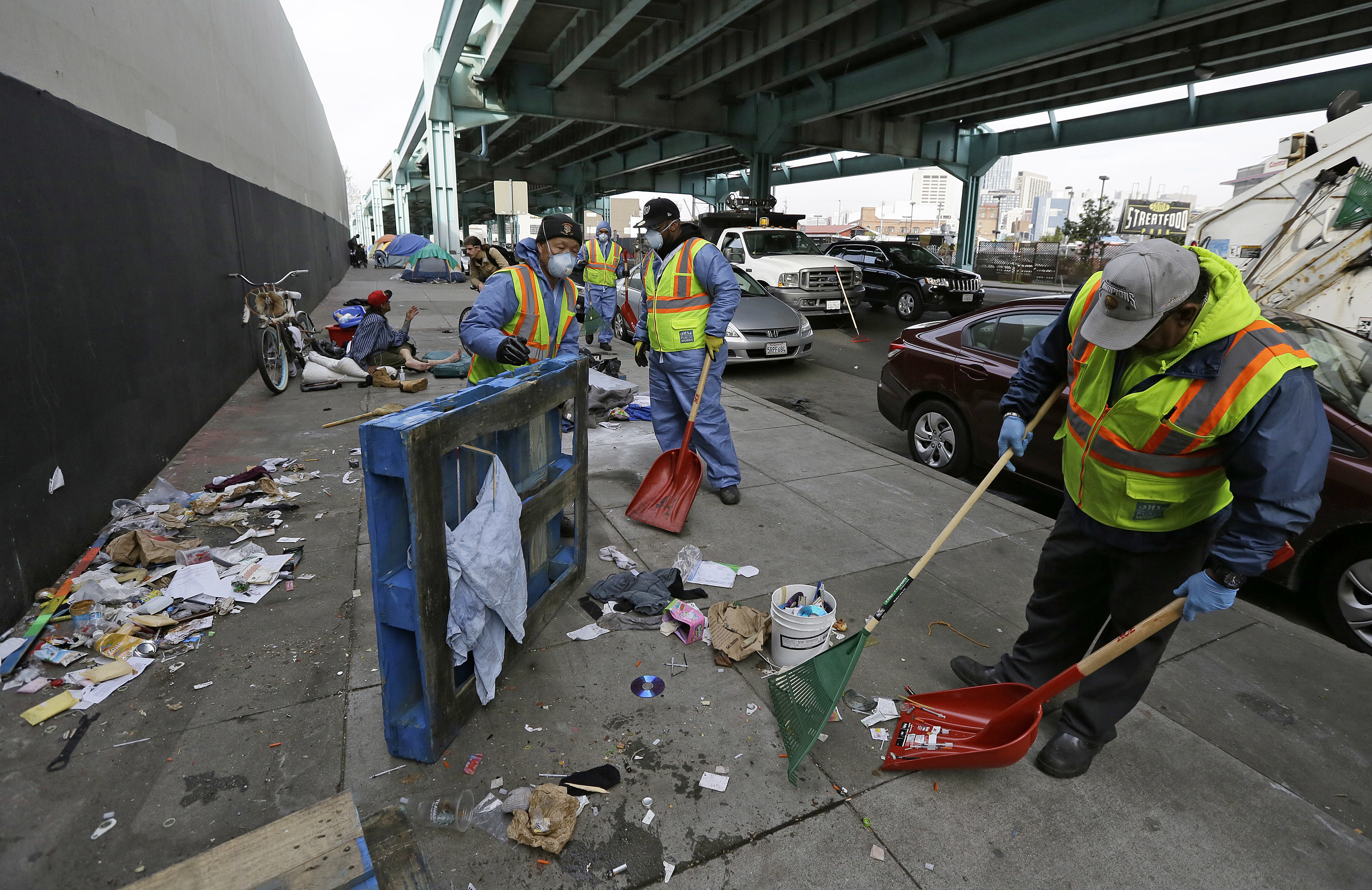- San Francisco spent nearly $54 million this year on street cleanup, and $35 million the year before.
- While the average city cleanup staff has around 40 workers, San Francisco’s has more than 300.
- The city has hired new workers to rid its streets of needles and feces: two effects of the rising homelessness crisis.
San Francisco spends a shocking amount of money on street cleanup.
According to a recent report from the city’s Budget and Legislative Analyst’s Office, the city dedicated around $35 million last year to keeping its streets tidy and feces-free. That number rose to nearly $54 million for the 2017-2018 fiscal year, and is expected to climb even higher – to around $60 million – by 2019, the San Francisco Chronicle reported.
These sums are quite large compared to other major cities like Los Angeles and Chicago, which spent around three to four times less, despite having more than triple the population size. San Francisco’s total doesn’t even include overhead costs, which added another $11.2 million to last year’s tally. In its survey of 11 major US cities, the report found that the median yearly cost of street cleaning was around $8 million.
It seems obvious why San Francisco is spending so much: The city has one of the worst homelessness crises in the country, with more than eight out of every 1,000 residents living unsheltered or without a home. This has created a massive poop problem on its streets – particularly in the Tenderloin district, where the majority of the city’s homeless are located.
The issue has become so egregious that San Francisco has taken to hiring new workers and paying them more than $184,000 a year in salary and benefits for cleaning up feces. Earlier this year, the city set aside another $750,000 to hire a team exclusively dedicated to needle cleanup.
The addition of new workers helps explain why efforts have been so costly. While the average city cleanup staff has around 40 workers, San Francisco's has more than 300, according to the report.
The city also received more than 77,000 annual requests for street cleaning in 2016-2017, creating a need for additional services that respond to requests more frequently. By comparison, Baltimore received only 32,500 calls for street cleaning, despite having the second highest number of requests.
While it's possible that San Francisco's cleanup services aren't running efficiently, the report found that the city's public works team responded to requests in about three days - the same amount of time it took for other cities with fewer service calls. To get ahead of the issue, San Francisco will need to address its underlying cause: the troubling amount of residents living on the streets.

